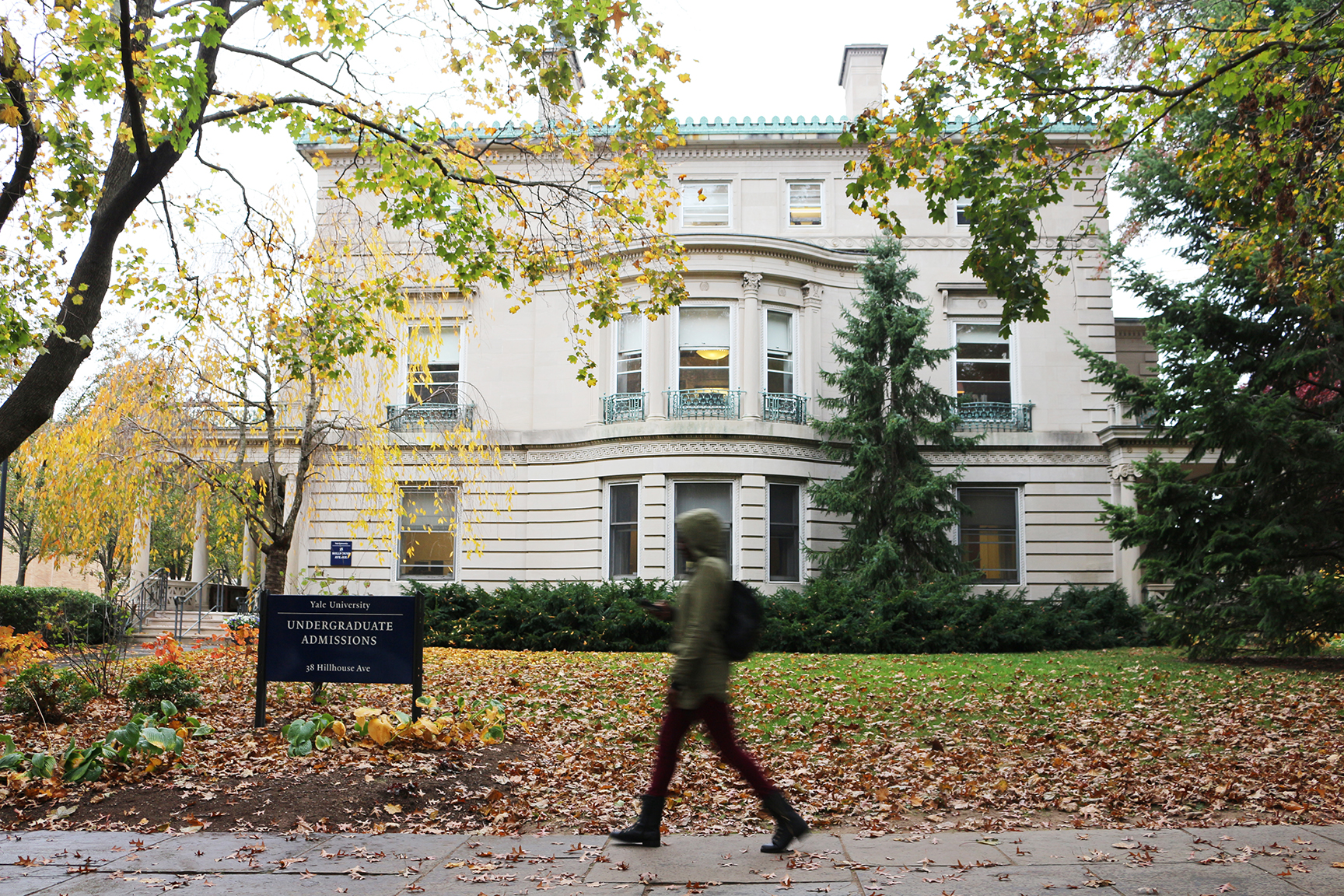
Tarna Zander-Velloso
Yale is under investigation by the Department of Justice and Department of Education for its alleged discrimination against Asian-American applicants, University President Peter Salovey wrote in a statement to the Yale community on Wednesday.
The Department of Justice began its investigation of Yale in April, according to a letter released to the public on Wednesday from the Department of Education’s Office for Civil Rights. The investigation into Yale’s alleged discriminatory practices stems from a complaint filed in May 2016 by the Asian-American Coalition for Education and 132 other Asian-American organizations.
The original complaint, which also leveled allegations against Brown and Dartmouth, claims that the universities’ admissions processes deliberately limit the number of Asian-American students admitted each year. A similar complaint was also filed against Harvard in 2015.
In an email to the Yale community, Salovey reaffirmed the University’s commitment to diversity and denied the allegations of discrimination.
“I write now to state unequivocally that Yale does not discriminate in admissions against Asian-Americans or any other racial or ethnic group, to share information about our undergraduate admissions practices and to affirm our unwavering commitment to diversity as a pillar of this university,” Salovey wrote.
In the email, Salovey explained that the Admissions Office takes into account a wide variety of factors when evaluating applicants, including applicants’ academic excellence, demonstrated leadership experience, background and success in taking full advantage of available resources. According to Salovey, this holistic approach to admissions “complies fully with all legal requirements and has been endorsed repeatedly by the Supreme Court.”
Salovey also touted the class of 2022 as the most diverse ever admitted, with 20 percent of first years receiving Pell Grants for low-income students and 18 percent being the first in their families to attend college. He added that the percentage of incoming Asian-American students has grown to 21.7 percent in the class of 2022 from below 14 percent fifteen years ago.
When asked for a comment, Dean of Undergraduate Admissions and Financial Aid Jeremiah Quinlan referred the News to Salovey’s email. Salovey and Director of the Office of Public Affairs and Communications Tom Conroy did not respond to requests for comment.
In response to Salovey’s claim that Yale “does not discriminate in admissions,” Yukong Zhao, president of the Asian-American Coalition for Education said that Yale should open its records and allow the Departments of Justice and Education to conduct a thorough and complete investigation. In his email, Salovey said that the University would “cooperate fully with the inquiries conducted by the federal government.”
“Historically, Asian-Americans have not been a politically influential group and have therefore been ignored,” said Zhao. “It is time to stop. Harvard and Yale are just the tip of the iceberg.”
Zhao told the News that while the population of Asian-Americans has grown in recent years, the acceptance rate at private universities has remained relatively stagnant.
At Yale, the percentage of accepted Asian-American students increased five percent from 2003 to 2017 — 13.4 to 18.9 percent, according to the Office of Institutional Research. OIR does not include students who indicated two or more ethnicities on their application in this group.
Zhao cited two studies as motivation for filing the complaint. A Princeton study from 2009 concluded that Asian-Americans needed to score more than 140 points higher on their SAT than white students to have the same chance of admission to private colleges. 39 percent of admissions directors surveyed by Inside Higher Ed and Gallup in 2018 said that on average, Asian-American students admitted to their colleges had higher grades and test scores than other applicants.
Justice Department Spokeswoman Kelly Laco told the News that the department “takes extremely seriously any potential violation of an individual’s constitutional rights,” but declined to comment any further.
While the letter disclosed that the Department of Justice declined to pursue the allegations filed against Brown and Dartmouth because of a lack of evidence, the Department of Justice has been looking into the complaint against Harvard since 2017. In a court filing in August, the Department determined that Harvard’s alleged improper use of race-based admissions policies “significantly disadvantage Asian-American applicants compared to applicants of other racial groups.”
Harvard continues to deny allegations of discrimination, insisting that the suit, which will likely go to trial in October, be dismissed.
But during the summer, Harvard was forced to release hundreds of pages of confidential admissions documents, revealing the university’s controversial admissions practices, including the use of a rating system to differentiate between applicants. According to the documents, Harvard’s admissions officers had been consistently rating Asian-American applicants lower on “personality traits,” hurting their chances of admissions.
Edward Blum, president of Students for Fair Admissions, the group that filed the lawsuit against Harvard, declined to comment.
A 2016 Gallup Poll said that 70 percent of Americans support exclusively merit-based admissions to institutions of higher learning
Skakel McCooey | skakel.mccooey@yale.edu
Lorenzo Arvanitis | lorenzo.arvanitis@yale.edu







